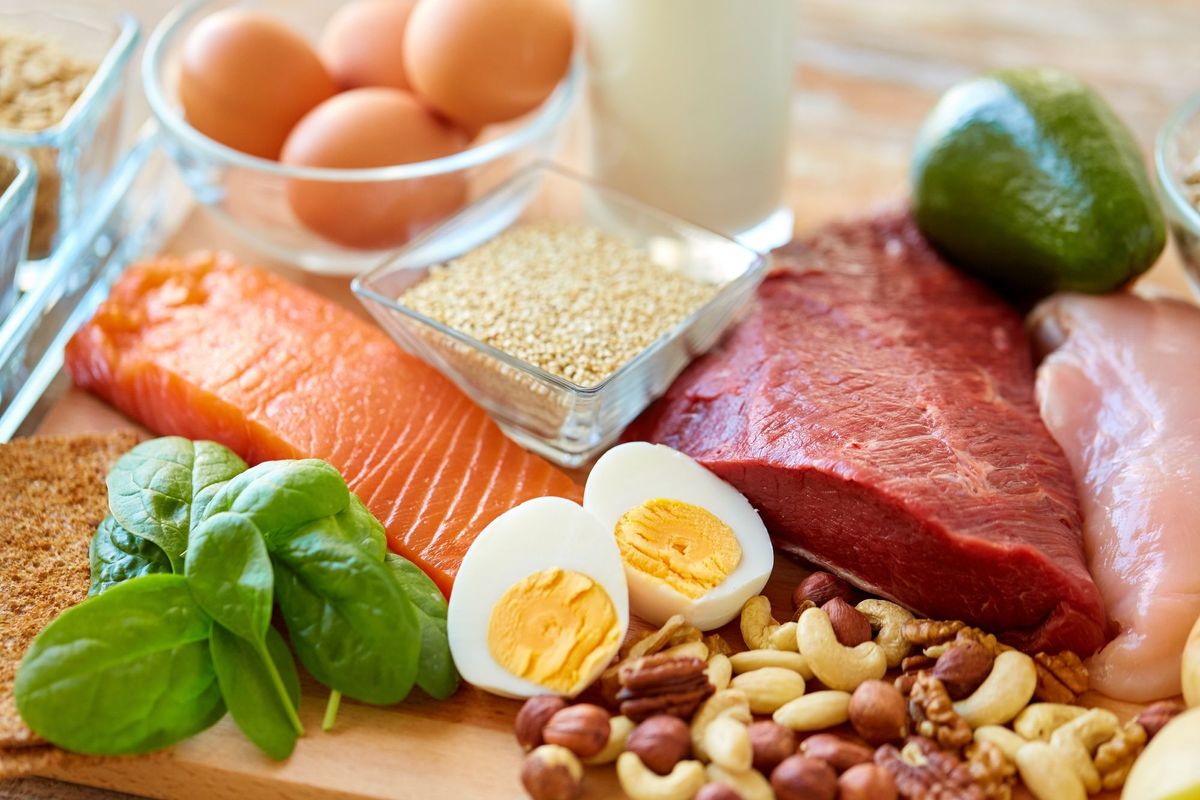Americans display a notable fascination with protein, driven in part by extensive research illustrating its role in weight management, body composition, and the maintenance of a robust immune system.
The Recommended Dietary Allowance (RDA) prescribes a minimum protein intake of 0.8 grams per kilogram of body weight (0.37 grams per pound), adequate to prevent deficiencies but not necessarily ideal for most individuals. Numerous experts contend that an optimal protein intake falls closer to 1.2-1.4 grams per kilogram of body weight or 0.6-0.9 grams per pound. Those who engage in physical activity require additional protein to facilitate muscle recovery and growth following exercise. Research suggests that as we age, our protein needs surpass the RDA due to age-related declines in our ability to process protein, which can exacerbate the natural muscle loss that occurs with aging. To simplify these recommendations, aiming for 20-30 grams of protein per meal across your three main meals is an effective strategy. This approach is favored as it promotes the digestion and absorption of essential amino acids present in protein-rich foods.
While striving for greater protein intake, focusing on high-quality sources is paramount. Protein-rich foods can vary significantly in nutritional value. Several animal-based protein sources, such as fatty cuts of red meat and processed deli meats, have been linked to an increased risk of heart disease and specific cancer types.
Here, we present a list of ten protein-rich foods to include in your grocery list, ensuring that you prioritize the healthiest protein sources for your diet. Continue reading to discover more.
1) Eggs:
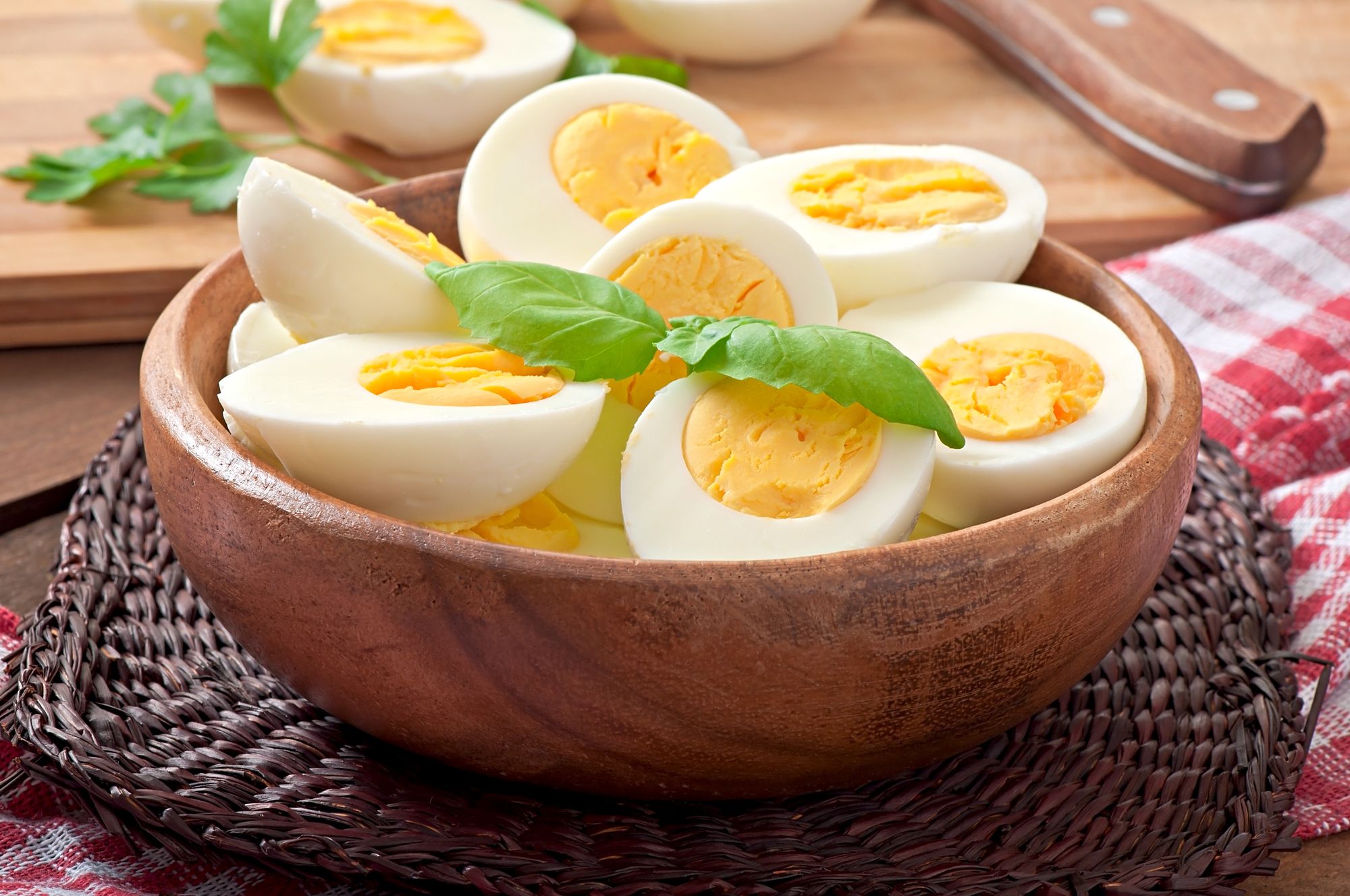
Eggs are often hailed as the protein gold standard. A study in the Nutrients journal affirmed that egg protein boasts exceptional digestibility and serves as an outstanding source of all nine essential amino acids, clinching the highest protein digestibility-corrected amino acid score among all protein sources.
A single large egg, containing a mere 70 calories, offers a treasure trove of over 13 vital nutrients, including iron, vitamin D, zinc, lutein, zeaxanthin, and choline. With six grams of top-notch protein and antioxidants, eggs are a nutritional powerhouse. They can also assist in weight management, with research indicating that an egg-based breakfast reduces hunger and overall calorie intake for the day. In a head-to-head study against bagels, individuals who consumed an egg breakfast lost a remarkable 65% more weight and notably more abdominal fat. Moreover, eggs exhibit infection-fighting properties and provide anticancer benefits.
2) Fish and Seafood:
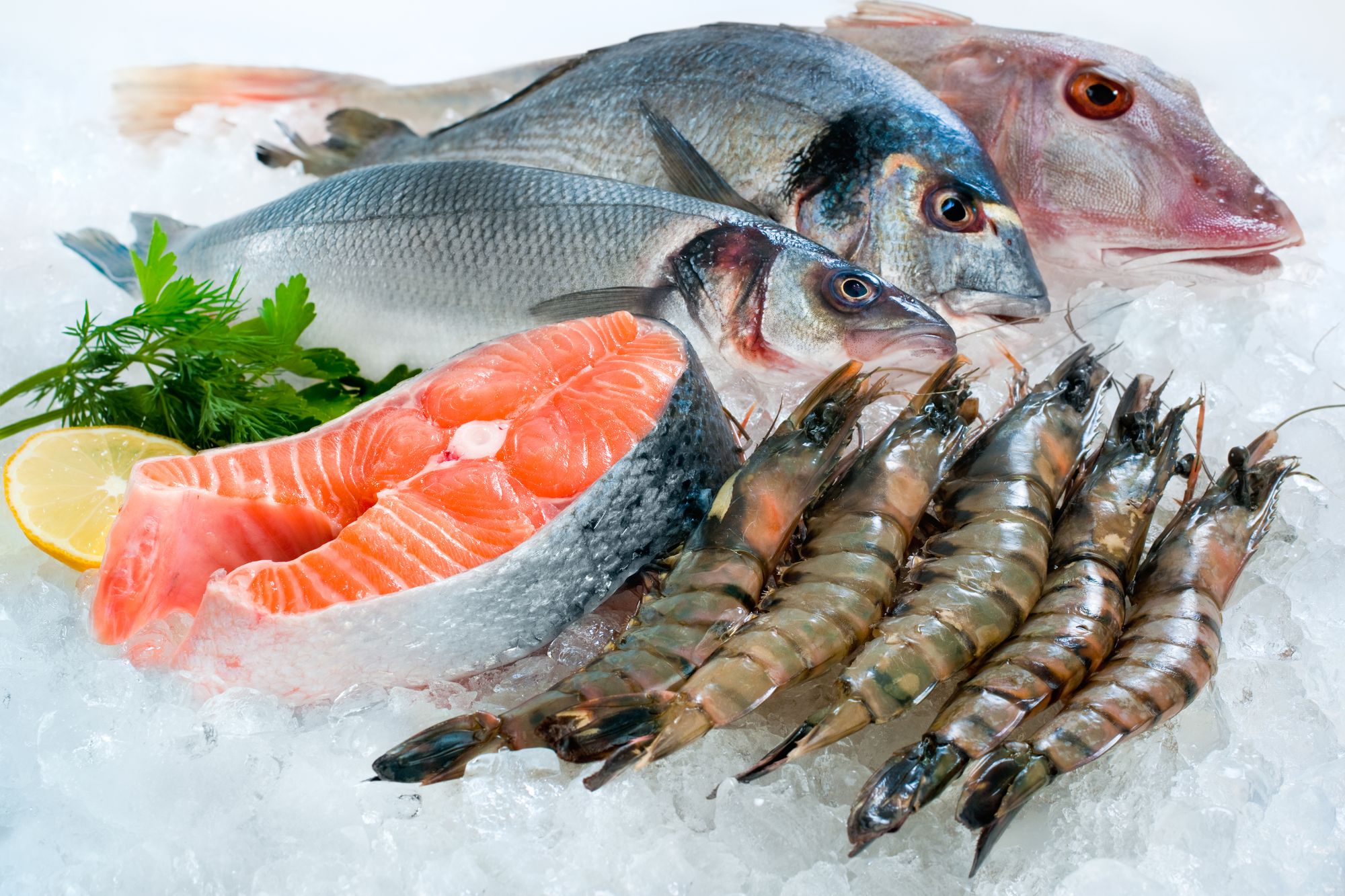
Fish and seafood are among the healthiest sources of high-quality protein for your dietary arsenal. Seafood, boasting all nine essential amino acids, offers approximately one-third of your daily recommended protein intake (20-25 grams of protein) in a three-ounce serving of tuna or shrimp. What's more, fish carries a calorie advantage, with a standard three-ounce serving clocking in at about 100 calories. The Dietary Guidelines for Americans and the American Heart Association endorse regular consumption of fish, recommending two to three servings per week (about six to eight ounces cooked). This intake supplies the recommended daily dose of 250 milligrams of EPA and DHA, beneficial long-chain omega-3 fatty acids renowned for reducing cardiovascular disease risk, taming inflammation, and conferring various other health benefits.
3) Greek Yogurt:
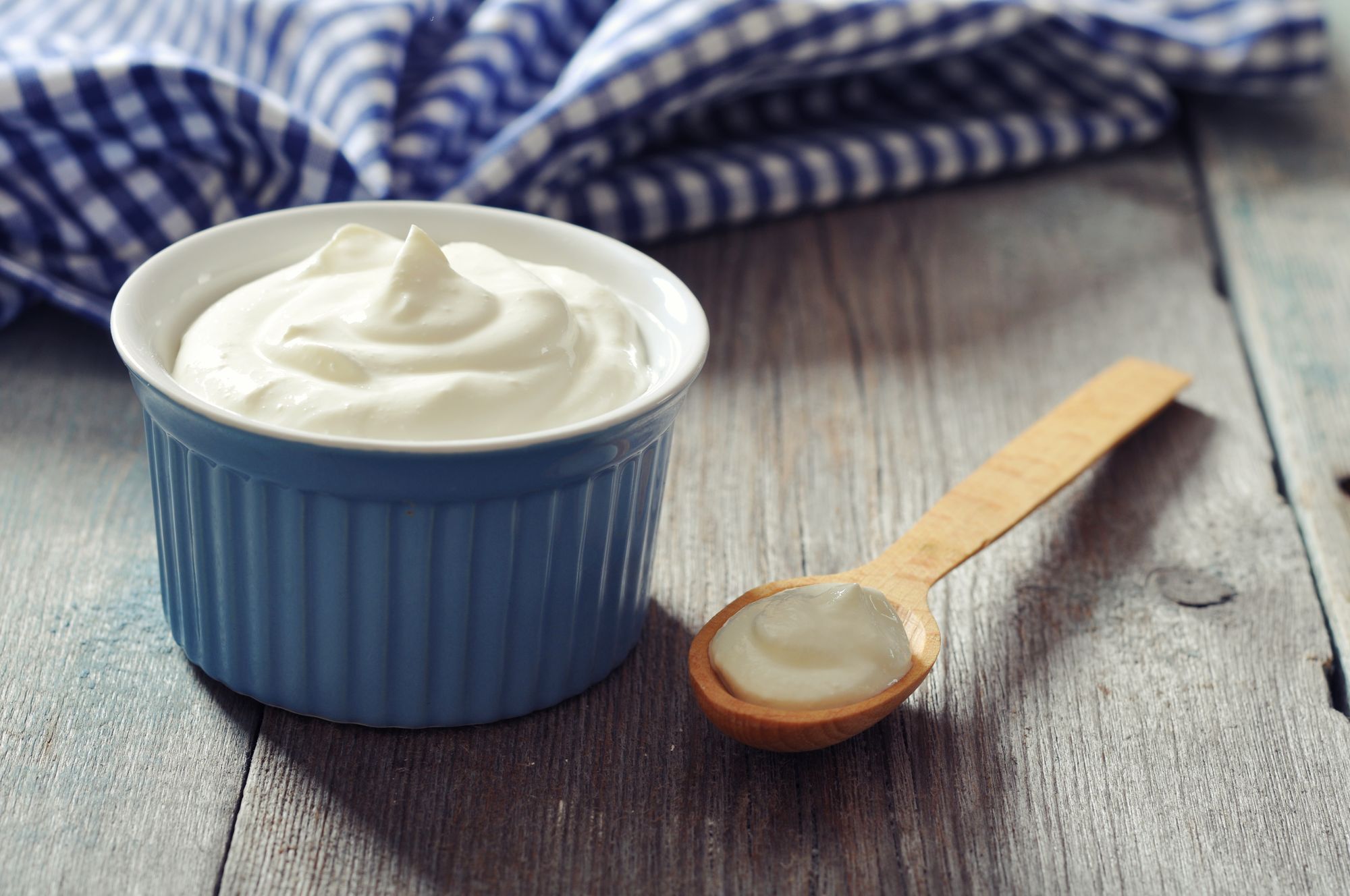
Greek yogurt, a long-standing European favorite, has gained popularity in the United States as an alternative to sugary, fruit-laden yogurts. It's lauded for its protein-rich composition, achieved through a unique straining process that eliminates liquid whey, yielding a thicker, creamier yogurt with double the protein content of regular yogurt. Additionally, Greek yogurt serves as an excellent source of calcium and provides probiotics to bolster immune and gastrointestinal function.
A six-ounce serving of most Greek yogurt brands delivers over 15 grams of protein, all within approximately 100 calories for nonfat, no-added-sugar varieties. To make a wholesome choice, opt for Greek yogurt with minimal added sugars. Greek yogurt proves to be a post-workout favorite, with a study in Frontiers in Nutrition revealing that untrained individuals incorporating Greek yogurt into their diets during a 12-week training program gained more muscle mass and reduced body fat compared to their counterparts who did not include Greek yogurt. Subjects consumed Greek yogurt thrice daily on training days and twice daily on rest days.
4) Cow's Milk:
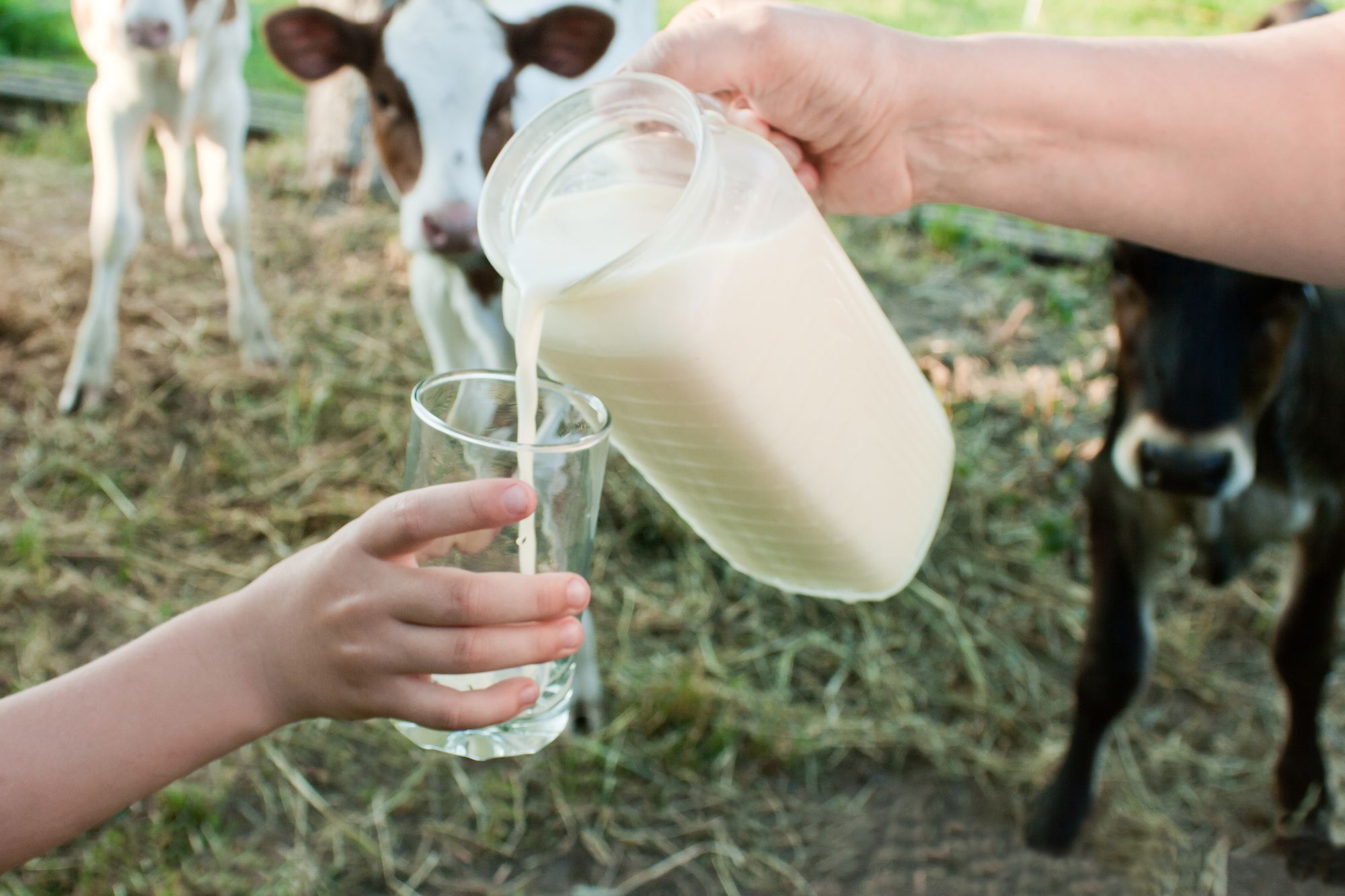
Dairy milk stands as a commendable choice for those seeking to augment their protein intake. Cow's milk delivers two distinct types of protein: casein and whey, with casein constituting around 80% of the total protein and whey accounting for the remaining 20%. Whey protein is swiftly digested and absorbed, while casein digests more slowly, enhancing satiety. A one-ounce serving of milk provides approximately one gram of protein, meaning an eight-ounce glass of any cow's milk variant, from skim to full fat, bestows eight grams of protein. Alongside protein, cow's milk boasts a wealth of nutrients, including calcium, vitamin D, B vitamins, and potassium. Opting for grass-fed milk yields additional benefits like conjugated linoleic acid and omega-3 fatty acids. Numerous studies, including one in Clinical Chemistry, affirm that milk enthusiasts tend to exhibit more lean muscle mass and improved body composition. Athletes often incorporate milk and dairy products into their diets to enhance recovery and foster muscle growth and maintenance.
5) Chicken Breast:

Chicken breast reigns as a premier source of lean protein. Surprisingly, it delivers more protein per ounce than beef. A three-ounce serving of cooked chicken breast provides approximately 28 grams of protein and 140 calories, according to the USDA's nutrient database. Opting for skinless chicken breast is advisable since skin-on cuts contain twice as much fat. Chicken breast not only shines in the protein department but also supplies an array of B vitamins, selenium, phosphorus, potassium, magnesium, and zinc. Research featured in Food and Nutrition Research underscores that skinless chicken breast is exceptionally low in fat, with a mere 1% categorized as unhealthy saturated fat. Furthermore, the high protein content in chicken contributes to satiety, potentially aiding in weight maintenance. Choosing chicken breast over higher-fat animal proteins may reduce the risk of cardiovascular disease and type 2 diabetes.
6) Turkey Breast:
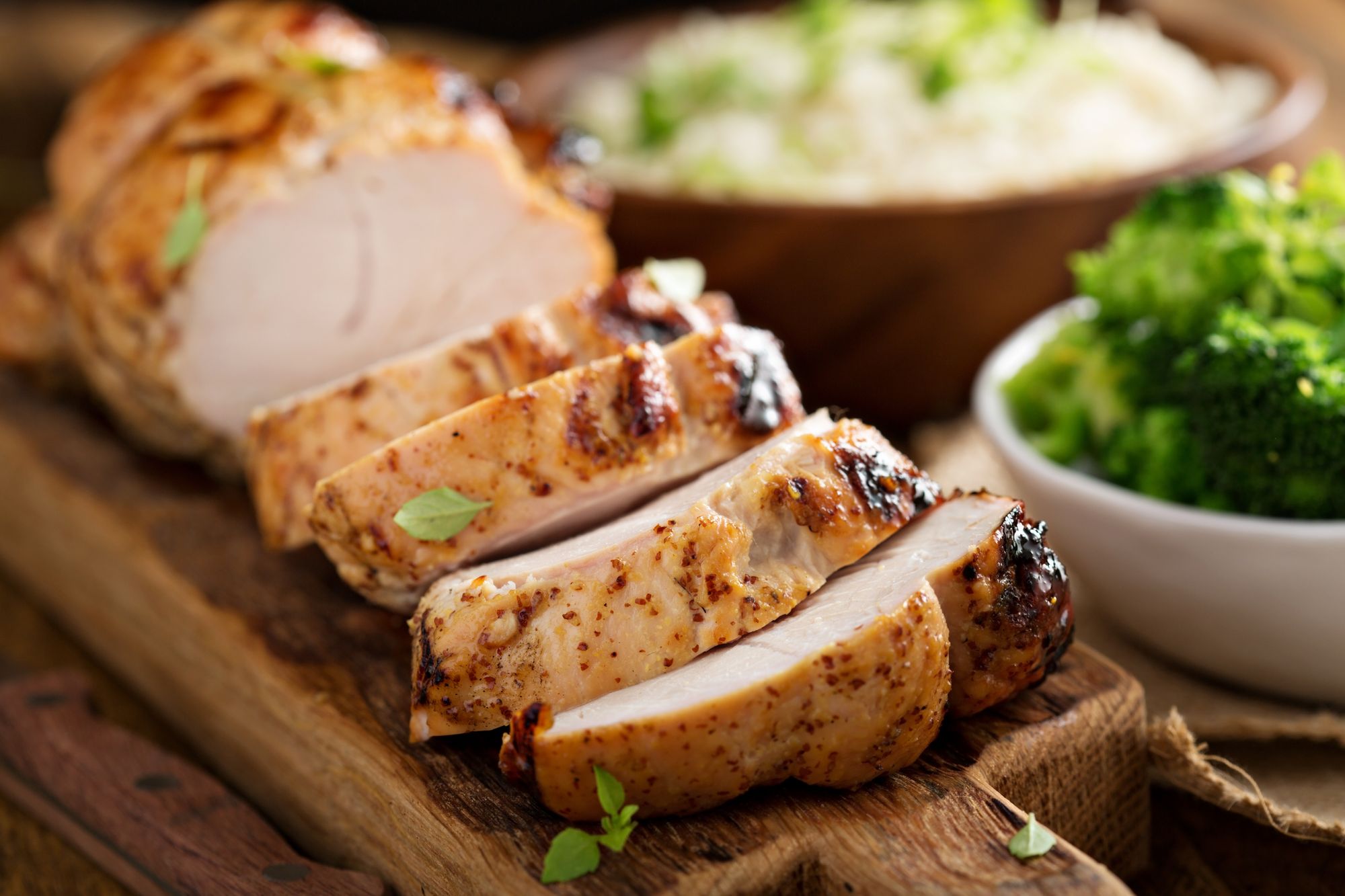
Turkey breast stands as an excellent choice to bolster your intake of high-quality, lean protein. Nutritionally akin to skinless chicken breast, a three-ounce portion of turkey breast offers a robust 25 grams of protein while being calorie-friendly at just 135 calories. Like skinless chicken breast, skinless turkey breast is also a source of B vitamins, niacin, selenium, and zinc. It boasts a low-fat profile. To promote your well-being, it's advisable to bypass processed turkey products, such as deli meats, in favor of minimally processed turkey that you can roast and savor across multiple meals. A review article featured in the peer-reviewed journal Nutrients underscores that red meat and processed meat consumption may elevate the risk of certain cancers, while white meats like turkey do not.
7) Cottage Cheese:
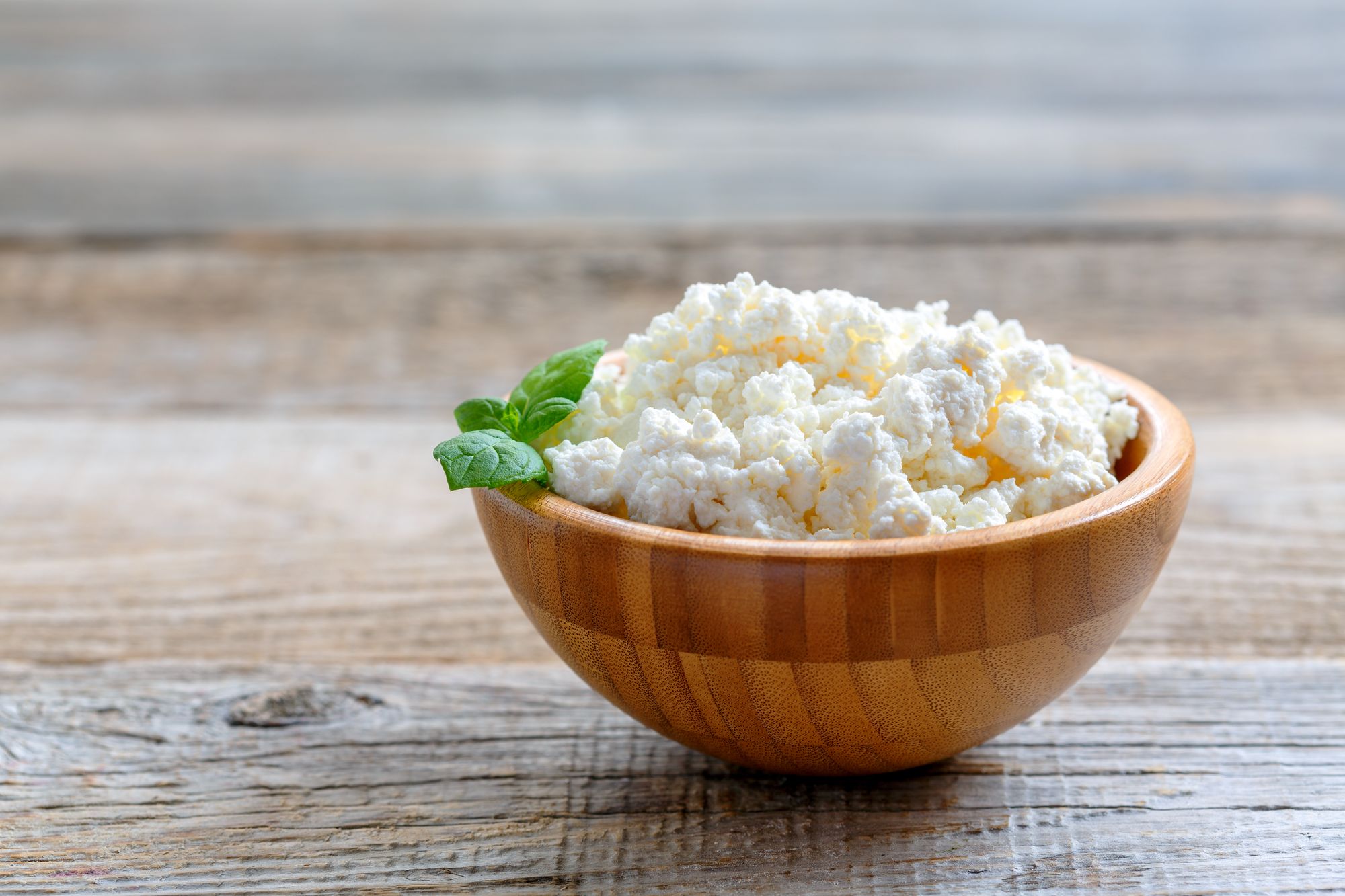
Cottage cheese, once considered a staple of diet-conscious individuals in the 1970s, has staged a remarkable resurgence lately, thanks to its stellar nutritional profile prized by athletes and health-conscious consumers. Low-fat cottage cheese offers a protein density that surpasses most other foods per calorie. A typical half-cup serving of low-fat plain cottage cheese supplies approximately 14 grams of protein and 100 calories, in addition to being a noteworthy calcium source. A study documented in the journal Appetite reveals that snacks with equal calorie counts, such as eggs or cottage cheese, deliver comparable satiety benefits, aiding participants in consuming fewer calories after snacking on either. Cottage cheese's protein content comprises around 80% slow-release casein, making it an excellent choice for extended satiety, blood sugar level moderation, and post-exercise muscle recovery.
8) Beans:
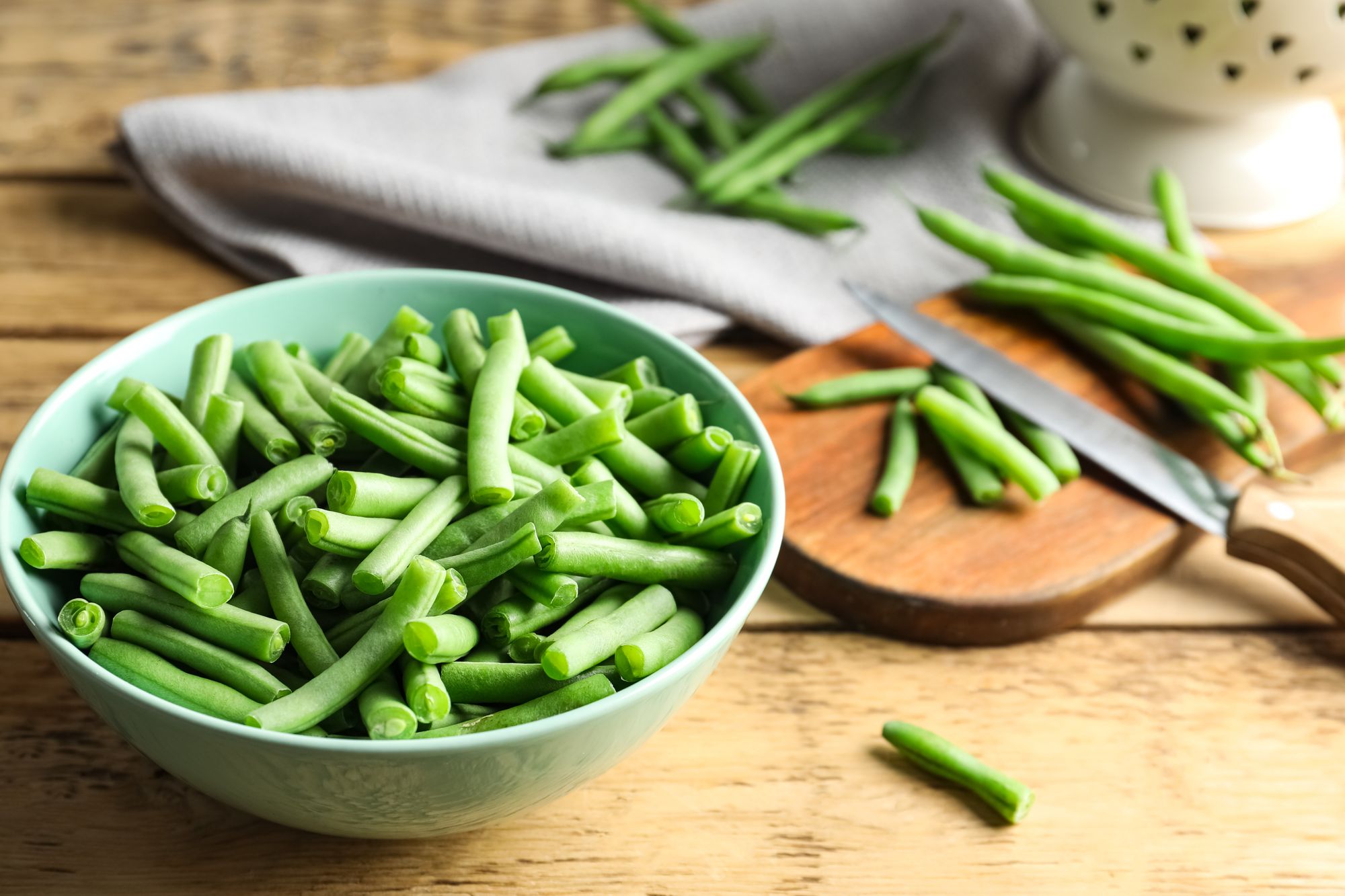
For a plant-based protein source, beans represent one of the healthiest options. A cup of beans delivers approximately 15 grams of protein, coupled with the added benefits of fiber, antioxidants, zinc, B vitamins, potassium, magnesium, and a host of other essential nutrients. Beans, noted for their satiety-inducing combination of protein and fiber, carry substantial health advantages. Research in the American Journal of Clinical Nutrition highlights the presence of beneficial polyphenols in beans that aid in lowering LDL-cholesterol and reducing the risk of metabolic syndrome, heart disease, and type 2 diabetes. Beans hold such health value that the Dietary Guidelines for Americans advocate consuming three cups of beans and legumes each week, equivalent to half a cup daily.
9) Soyfoods (Edamame, tofu, soymilk):
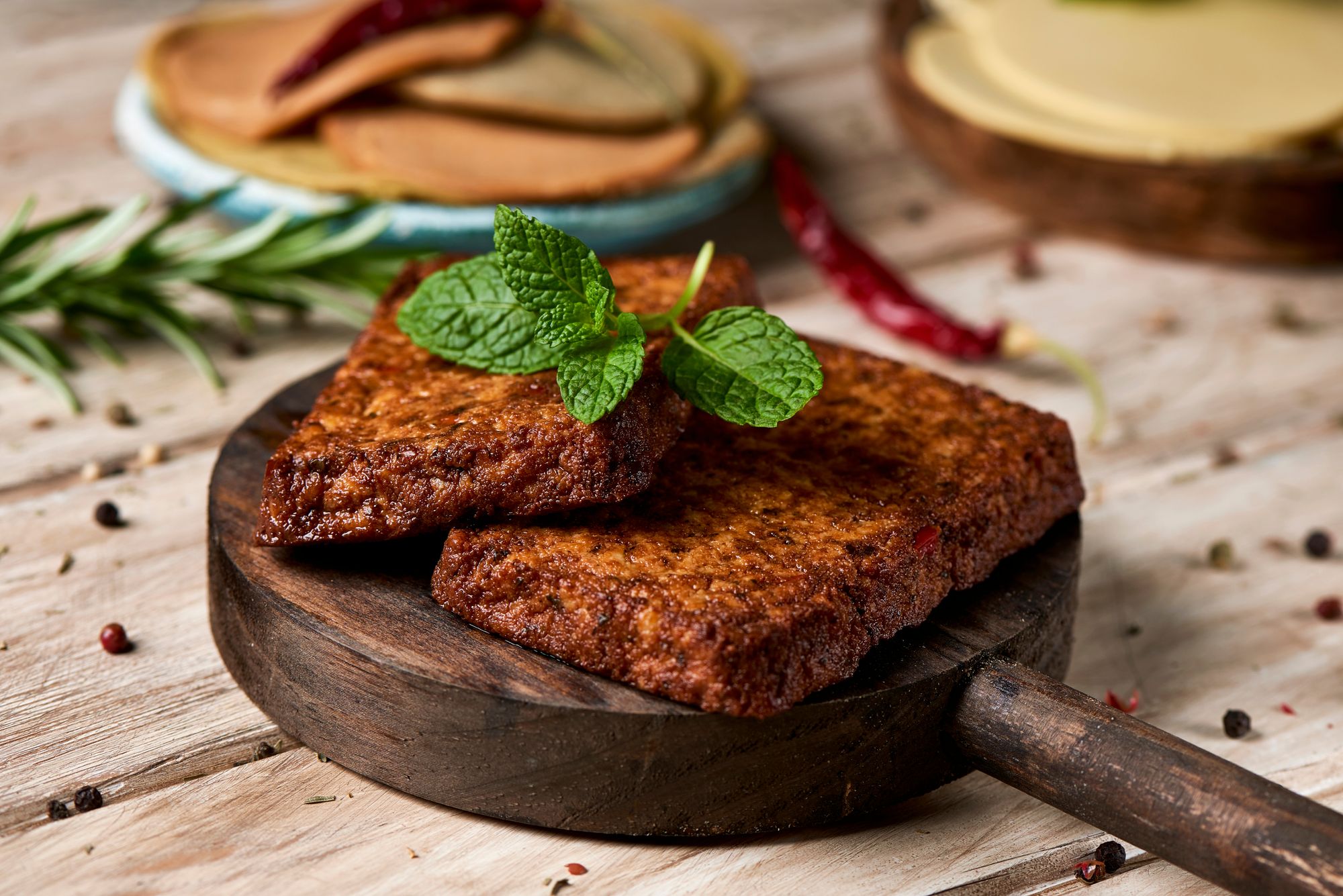
Soy foods constitute a prime plant-based protein option to incorporate into your diet, particularly if you lean towards a plant-based eating style. Soy foods offer complete protein, containing all nine essential amino acids, setting them apart as a comprehensive protein source. In contrast to animal proteins, soy features minimal saturated fat content, rendering it a heart-healthy protein choice. A cup of edamame (steamed immature soybeans in pods) provides roughly 17 grams of protein, 8 grams of fiber, and approximately 200 calories. Soybeans excel in fiber and magnesium content and further provide iron, B vitamins, omega-3 fatty acids, and a plethora of other essential nutrients. Soybeans are also rich in isoflavones, with studies demonstrating their role in preserving bone health and potentially safeguarding against certain types of cancer.
10) Lentils:
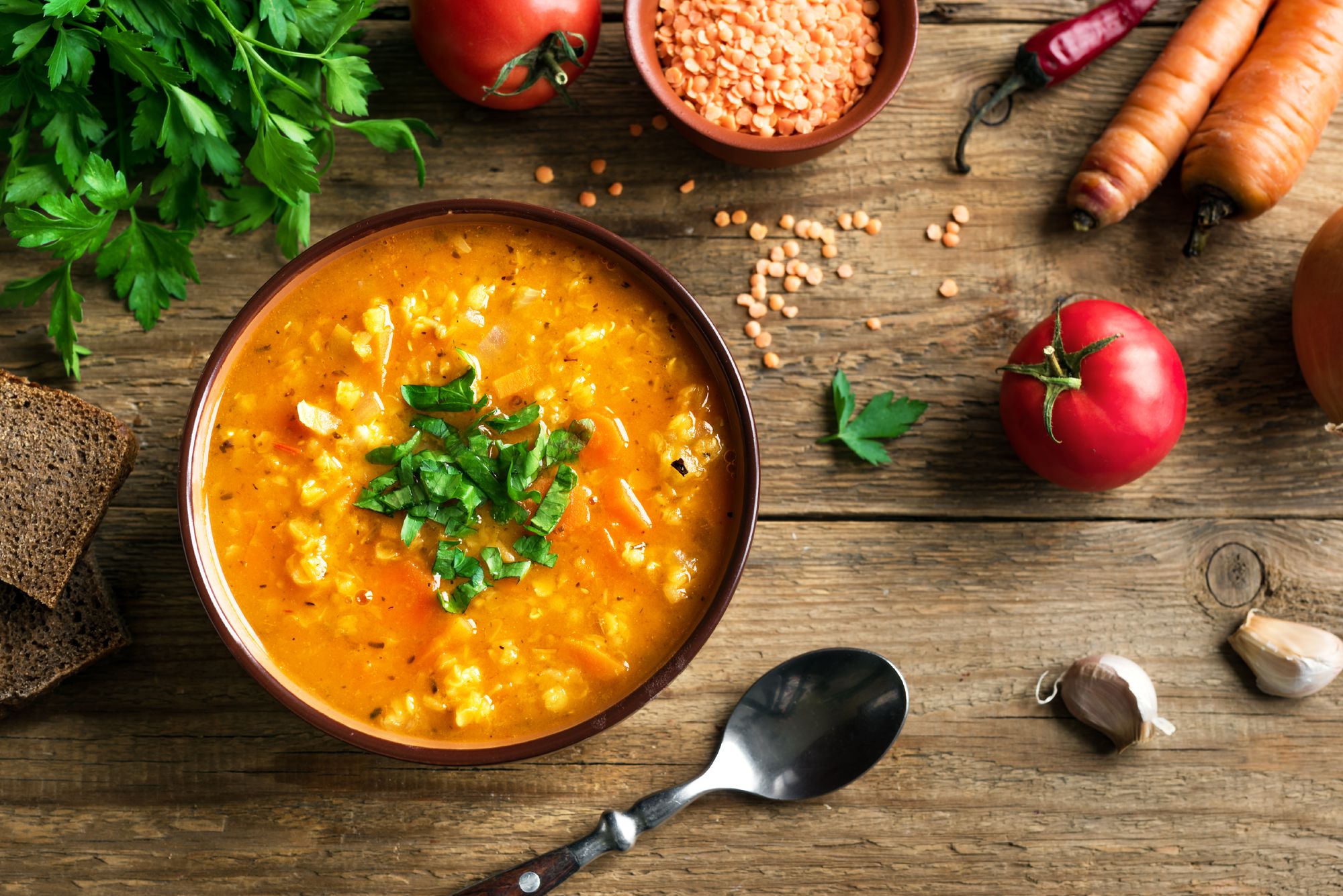
Lentils, belonging to the legume family like beans, are dried, protein-packed seeds available in various varieties, including brown, red, yellow, black, and more. Irrespective of the lentil type, you choose, it stands as a nutritious protein source. A cup of lentils furnishes around 18 grams of protein within 230 calories, a profile similar to most bean varieties. Lentils additionally supply B vitamins, iron, zinc, potassium, and magnesium, alongside a bounty of antioxidants that counter inflammation and reduce the risk of chronic ailments. Research featured in the International Journal of Molecular Sciences underscores lentils' richness in bioactive compounds that contribute to a decreased risk of diabetes, obesity, cancer, and cardiovascular disease.

